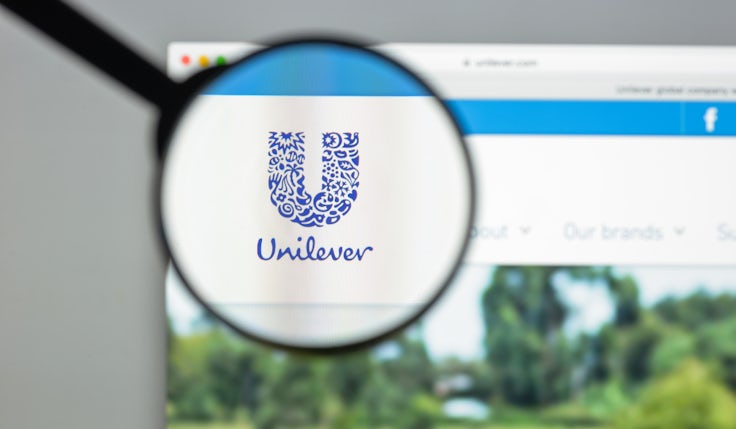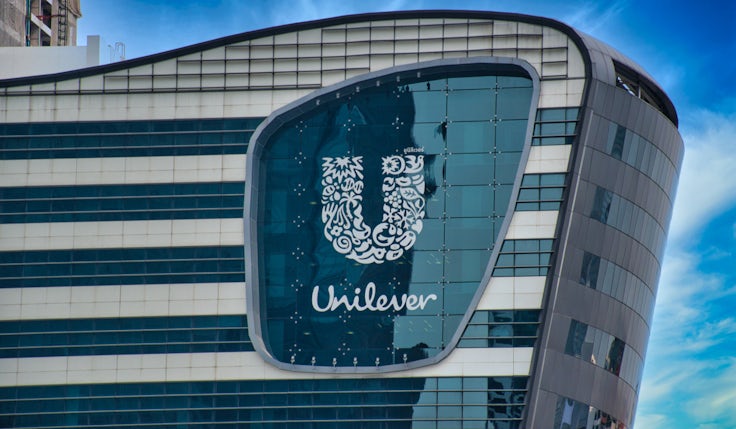Alan Jope to step down as Unilever CEO
Jope is to retire from the FMCG business at the end of 2023, having led on a series of structural and strategic changes at the company since he took over in 2019.

Alan Jope will step down as CEO of Unilever at the end of next year, following five years in the role.
A former marketer, Jope took over from previous CEO Paul Polman in January 2019. Polman had served a decade as boss of the FMCG giant before his retirement.
Unilever says it has not yet selected a successor for Jope, but is now proceeding with a “formal search” and will consider both internal and external candidates.
The departing CEO has been at Unilever for over 35 years, having joined the company in 1985 as a graduate marketing trainee. He was promoted to CEO from his role as president of beauty and commercial care, a position which he had held since 2014.
Jope says he believes “now is the right time” for him to depart his role, adding that growth would remain the “top priority” for the business going forward.
Others at the business have highlighted the changes made under his leadership.
“Alan’s retirement next year will mark the end of a remarkable career with Unilever. Under his leadership, Unilever has made critical changes to its strategy, structure and organisation that position it strongly for success,” says Unilever chairman Nils Anderson.
While Anderson praises Jope’s contribution to Unilever’s success, not all of the changes that have taken place under his leadership have been universally welcomed. The business has doubled down on its focus on purpose in recent years, claiming it is important for both the long- and short-term growth of its brands.Major Unilever investor says business has ‘lost the plot’ with brand purpose focus
However, Unilever’s purpose-led strategy has been criticised by some investors. At the beginning of this year one of Unilever’s major investors, fund manager Terry Smith, founder of Fundsmith Equity Fund, publicly slammed the company’s focus on purpose as “ludicrous”, partly blaming it for the business’s underwhelming performance in 2021.
“A company which feels it has to define the purpose of Hellmann’s mayonnaise has in our view clearly lost the plot,” he wrote.
Unilever defended its approach shortly afterwards, highlighting the growth it had seen in its purpose-led brands in its full year financial report for 2021. Dove experienced its fastest growth in eight years at 8%, while Jope called out Hellmann’s 11% growth and Ben & Jerry’s 9% growth as “key performances” within the group.
Building a “purpose-led, future-fit organisation and growth culture” would remain a strategic priority for the business, he said at the time.
Good purpose, bad purpose: Marketers shouldn’t oversimplify the arguments
Jope’s leadership also saw the FMCG giant embark on an attempt to acquire GSK’s consumer healthcare business, which also proved unpopular with investors. Unilever submitted three bids for the business, which GSK rejected “on the basis that they fundamentally undervalued the Consumer Healthcare business and its future prospects”. The business was spun off into new company Haleon earlier this year.
However, while attempts to buy GSK’s consumer health arm and Unilever’s purpose-led strategy have been unpopular with some shareholders, the business so far seems to be weathering the impact of inflation and reduced consumer spending well.
In its latest results for the first half of 2022, the company reported underlying sales growth of 8.1%, with a 9.8% increase in price and 1.6% drop in volume sales. Sales turnover therefore amounted to €29.6bn (£25.03bn), while underlying operating profit increased by 4.1% to €5bn (£4.23bn). Jope attributed this growth to “precision” action the business had taken on pricing.
At the beginning of July a new organisational structure for the business was introduced, which saw Unilever move away from a matrix structure and create new business groups focused around five categories, such as beauty and wellbeing, and ice cream. Unilever calls the new model “simpler [and] more category-focused”.
Only a few weeks into the new structure, Jope claimed it was already helping the organisation take quick action on pricing.
Strategy gear change
On top of organisational changes, Jope’s tenure as CEO has seen Unilever embark on a number of changes involving its overall strategy. In 2021, the business outlined five strategic pillars for its future growth, which included positioning brands in categories tipped for future growth and international expansion.
Another pillar is ecommerce. Jope’s time leading Unilever has been heavily influenced by the outbreak of Covid-19 in March 2020, which saw consumers take up online shopping en masse. With this pandemic-driven behaviour persisting now that restrictions have been lifted, the business has been positioning itself to lead in online and ecommerce channels.
Unilever’s top marketer Conny Braams has been leading on this digital transformation. Braams was appointed in 2020, a year into Jope’s leadership. Upon her appointment “digital” was added to her job title, making her chief digital and marketing officer, a deviation from the CMO title her predecessor Keith Weed had used.Unilever’s marketing boss: CMO title change reflects ambition to ‘build brands’ via commerce channels
At the time, she told Marketing Week the job title change reflected her role leading the digital transformation of the company as a marketer.
“With the creation of this job we’ve been able to take a look at the end-to-end digitalisation of Unilever and marketing,” she said.
In April 2022, Braams’ title was changed to chief digital and commercial officer. Braams insisted the change did not mean Unilever was dropping marketing, but said the tweak in title reflected a desire to remove “silos” between marketing and sales at the company.






